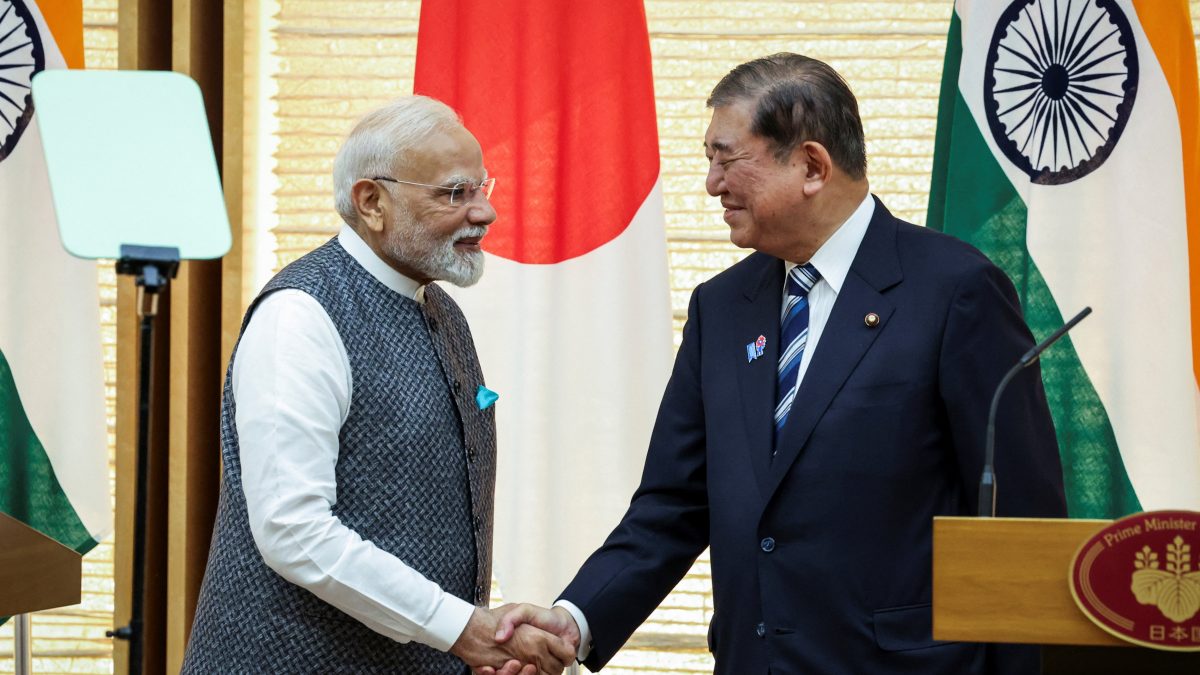India and Japan expressed strong concern over the situation in the East China Sea and the South China Sea and reiterated their opposition to any “unilateral actions” in the region.
“The two Prime Ministers expressed serious concern over the situation in the East China Sea and the South China Sea. They reiterated their strong opposition to any unilateral actions that endanger the safety as well as freedom of navigation and overflight, and attempt to change the status quo by force or coercion,” Prime Minister’s Office said in a statement.
The statement said the two leaders shared their serious concern over the militarisation of disputed features.
“They reaffirmed that maritime disputes must be resolved peacefully and in accordance with international law, in particular the UN Convention on the Law of the Sea (UNCLOS),” added the statement.
PM Modi and his Japanese counterpart Ishiba also strongly condemned terrorism in all its forms, including cross-border terrorism, reaffirming their shared commitment to combating violent extremism.
“They condemned in the strongest terms the terrorist attack in Pahalgam, Jammu and Kashmir on 22 April 2025, and took note of the United Nations Security Council Monitoring Team Report of 29 July mentioning The Resistance Front (TRF),” said the statement.
“PM Modi further explained that the TRF had claimed responsibility for the attack. Prime Minister Ishiba noted this with concern. They called for the perpetrators, organisers, and financiers of this reprehensible act to be brought to justice without any delay,” the statement added.
Impact Shorts
More ShortsThey also urged decisive international action against all UN-designated terrorist groups, including Al Qaeda, ISIS/Daesh, Lashkar-e-Tayyiba (LeT), Jaish-e-Mohammad (JeM), and their affiliates.
Emphasising the need for a zero-tolerance approach to terrorism, PM Modi and PM Ishiba called for dismantling terrorist safe havens, cutting off financial networks linked to terrorism, and disrupting its connections with transnational organized crime.
They also underscored the importance of preventing the cross-border movement of terrorists.
With inputs from agencies


)

)
)
)
)
)
)
)
)



